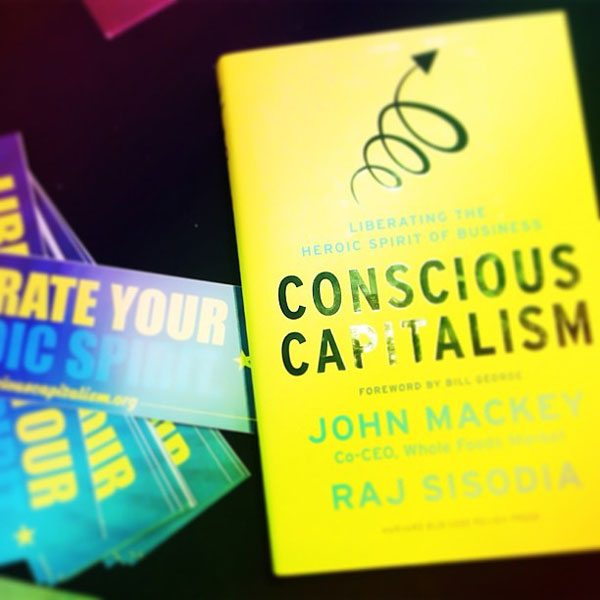
February 28, 2018; Colorado Springs Independent
“Business can no longer be divided into the private sector (for-profit), the public sector (government) and the plural sector (nonprofits). Now, there’s a fourth sector that encompasses ‘conscious capitalism,’” proclaims Rhonda Van Pelt in the Colorado Springs Independent.
Jonathan Liebert is CEO and executive director of the Better Business Bureau (BBB) of Southern Colorado. Liebert also directs the Colorado Institute for Social Impact (CI4SI), which was launched in 2016 as a BBB initiative and now operates independently, with a $150,000 budget. The nonprofit, notes Colorado Springs Independent reporter J. Adrian Stanley, supports “four types of businesses: social enterprises (exist to solve a social issue, but also have commercial goals), social businesses (in which social and corporate goals are weighed equally), conscious capitalism companies (regular businesses that recognize a need to have a positive social impact), and benefit corporations (for-profit companies that include positive impact on society, workers, the community and the environment).”
Liebert is a “conscious capitalism” adherent. Says Liebert, “We live in a capitalist society; business is the economic engine of how things get done. But you can make money and provide higher purpose, not only for your employees, but also for the community.”
But who are these “conscious capitalist” firms? Well, Liebert cites a book called Firms of Endearment: How World-Class Companies Profit from Passion and Purpose. Originally released in 2007, with a second edition published in 2014, the book’s website lists supposedly exemplary firms, such as Starbucks, TOMS shoes, Stonyfield Farms, and Trader Joe’s.
Liebert notes that Standard & Poor’s top 500 companies “conducting business the traditional way have an average 118 percent rate of return over 15 years.” But if you “look how conscious capitalists are doing: 1,681 percent. It’s unbelievable.” Amazon, one notes, is listed as a “conscious capitalist” company, which may have spiked the average a little, given that $5,000 in stock purchased in Amazon 20 years ago would be worth $2.4 million today.
Sign up for our free newsletters
Subscribe to NPQ's newsletters to have our top stories delivered directly to your inbox.
By signing up, you agree to our privacy policy and terms of use, and to receive messages from NPQ and our partners.
Regardless, these are impressive financial returns. Some of the firms listed also have some progressive policies. Still, if you dig even a little, the “conscious capitalism” variety looks pretty similar to plain-vanilla capitalism. Take Starbucks, for instance—a supposed “conscious capitalist” company that is known for its progressive policies, such as helping raise money for community development financial institutions (CDFIs) and its commitment to hire refugees.
But when you look at where the money goes…well, how about former Starbucks CEO Howard Schultz? A year ago, Jen Wieczner wrote in Fortune that Schultz, who was about to retire at the time, would continue getting paid. As Wieczner writes, “Having taken home $21.8 million in 2016, Schultz, whose net worth is an estimated $3 billion, has long operated under a promise by Starbucks that he’ll continue to make at least as much as the company’s CEO, even if he doesn’t have to do the job anymore.” One might ask: In what moral universe is a company that has a CEO take home a thousand times what a barista earns an example of a “conscious capitalism”?
Naturally, at over $100 billion, the net worth of Amazon’s Jeff Bezos is even larger. The point is not to denounce billionaires. But clearly the system is fostering anything but greater equality.
Of course, on the ground, Liebert and his colleagues are doing good work in Colorado Springs. Van Pelt cites businesses they have supported, including “Blue Star Recyclers, which employs people with “disAbilities” to recycle discarded electronics; the Men’s Xchange, which offers a fresh start through gently used business attire; and Who Gives a SCRAP, which sells unwanted craft supplies and keeps them out of landfills.” Van Pelt adds that CI4SI partners with the local Small Business Development Center and community college and offers training, networking events, and consulting to help businesses increase their social return on investment.
Liebert makes one interesting observation. Citing survey data from the Boston-based marketing firm Cone Communications in 2016 and 2017, he notes that, “Seventy percent of Americans believe that companies have an obligation to take actions to improve issues that may not be relevant to their everyday business…[and] seventy-eight percent of Americans believe that it’s important for companies to stand up for important social justice issues.” Survey respondents named economic development, poverty, hunger, environment, human rights, education, health, and disease as areas where business should play a socially productive role.
According to Van Pelt, Liebert sees this data as a sign that “the tide is turning.” But another interpretation might be equally valid: namely that the gap between people’s expectations of business and actual business performance has never been wider.—Steve Dubb












